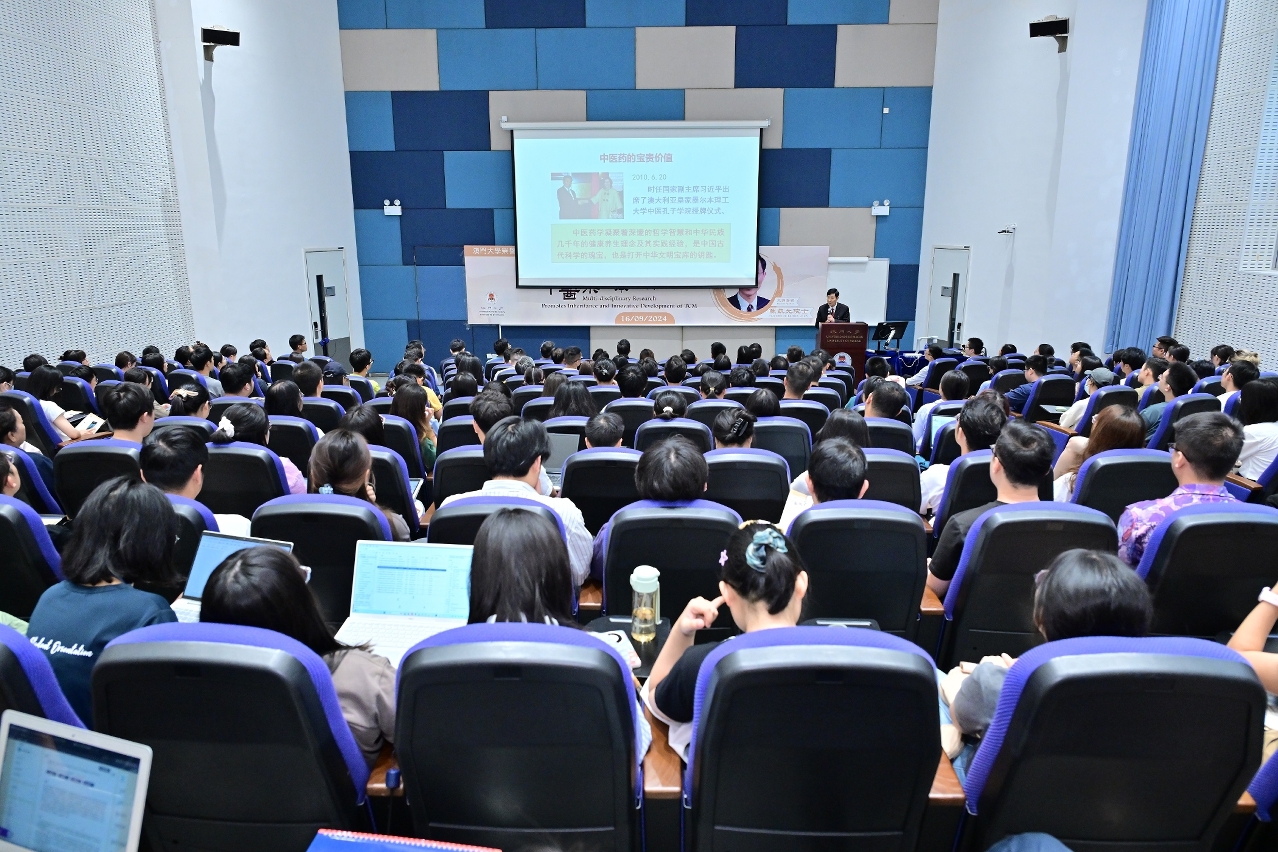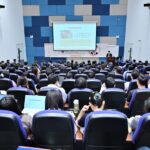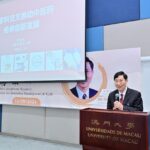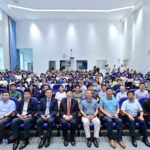 A CAS academician gives a talk at UM on how multidisciplinary research promotes the heritage and innovative development of TCM
A CAS academician gives a talk at UM on how multidisciplinary research promotes the heritage and innovative development of TCM
The University of Macau (UM) held a Doctor honoris causa Lecture titled ‘Multi-disciplinary Research Promotes Inheritance and Innovative Development of TCM’ today (16 September). Chen Kaixian, academician of the Chinese Academy of Sciences (CAS) and honorary doctor of UM, was the speaker. During the talk, Chen shared his thoughts and insights on the interdisciplinary integration of traditional Chinese medicine (TCM) and Western medicine. The talk was well attended by UM students and faculty, as well as people from various sectors of the community.
Chen Xin, director of the Institute of Chinese Medical Sciences of UM, said that Chen Kaixian is an outstanding scientist who has made significant contributions to the fields of drug design and drug discovery. His innovative work in developing new TCM and modernising TCM has been particularly noteworthy. Chen Kaixian is an academician of CAS, a researcher at the Shanghai Institute of Materia Medica of CAS, a professor at the Shanghai University of Traditional Chinese Medicine, and the director of the university’s academic committee. He also holds the titles of honorary president of the Chinese Pharmaceutical Association and the Chinese Association of Integrative Medicine. Chen Kaixian is also a pioneer in the field of computer-aided drug design in China, whose groundbreaking research has greatly enhanced human well-being and has been highly praised and recognised by various sectors of society.
Chen Kaixian expressed his gratitude to UM for awarding him an honorary doctorate and expressed his hope for closer connection with the university in the future. During the talk, the speaker detailed the exploration and progress in promoting innovation in TCM through multidisciplinary research. His discussion covered various topics, including the study of the mechanisms of TCM formulae, research on the concept of meridians and the effects of acupuncture, the digitisation and objectification of the ‘Four Diagnosis Methods’ in TCM, the study of biomarkers combining TCM and precision medicine, and new drug research based on TCM and natural products. He also highlighted that TCM is the treasure of ancient Chinese science, and its theories and practices hold significant relevance to contemporary health issues. The development of modern technology has provided new methods, techniques, and pathways for a deeper understanding of TCM, as well as promoting its heritage and innovative development, modernisation, and internationalisation. These advances offer new perspectives for achieving the historic goal of integrating traditional Chinese and Western medicine to form a ‘unified new medicine and new pharmacology’. When discussing future trends, Chen Kaixian used the ‘key technology research on effective components of TCM’ project as an example, and presented the achievements of the drug development model for TCM. He also highlighted the research and development of artificial intelligence technology in the field of TCM.
The talk provided an excellent opportunity for UM students and faculty, as well as industry professionals, to learn and exchange ideas. Through Chen Kaixian’s presentation and experience sharing, the audience gained a better understanding of the innovative development paths and future prospects of TCM in a multidisciplinary context. The speaker’s successful experiences also provided valuable insights and inspiration for talent cultivation and technological innovation at UM.




